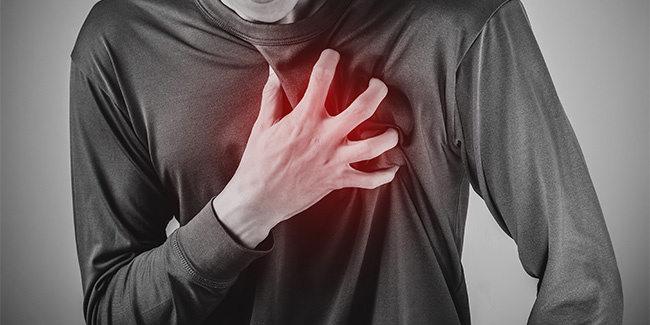
Do you have frequent chest pain? Is it increasing over time? Do you have a family history of heart disorder? Have you consulted a doctor? If not, then you might consider doing so. Because, according to a survey 70% of city dwellers in India suffer from heart diseases.
Table of Content:-

Angina is chest pain caused due to plaque build up in arteries which obstructs the flow of oxygen rich blood to the heart. Angina can be caused due to a variety of factors such as a sedentary lifestyle, history of heart disease in the family, age and stress.
What is angina ?
Angina is a symptom of a heart diesease- it is not a heart attack. Imagine your heart like a pump that pumps blood 24*7 to varius parts of the body. Attached to the heart are various arteries that supply it with oxygen rich blood. This is the fuel for the heart. This is what keeps it going. Due to various age and lifestyle factors, sometimes plaque gets built up in one of the arteries, which results in hindrance of fuel supply to the heart i.e shortage of oxygen rich blood supply, this is what causes angina.
How to prevent it ?
Chronic Angina can be prevented. You need to keep a check on a few important things :
• Minimise Cigarette smoking and exposure to tobacco smoke
• Maintain a normal blood pressure
• Maintain your diabetes: regulate your diabetes as close to normal as possible.
• Be physically active: work-out at least 30 minutes a day. Work-out does not necessarily mean going to a gym, instead you can walk, jump, climb stairs, play with children, and all these will help burn calories.
• Maintain your weight: Abnormal body weight is one of the main causes of a heart disease.
• Control you stress and anger: They have an adverse affect on your heart’s health. Do yoga, it relieves stress.
• Keep a check on your diet: Angina can be prevented by monitoring your diet. A diet high in saturated fat and cholesterol can increase the chances of Angina. Eat a balanced diet. Consult a dietician for a diet plan that suits your lifestyle.
• Alcohol increases the risk of Angina: Drinking too much alcohol can significantly increase your chances of getting a chronic angina disorder.
What to do when you have Angina?
Angina is caused due to poor blood supply to the heart for a short period of time. If you are having chest pains then watch out for the following symptoms of Angina:
- Chest pain or discomfort.
- Shortness of breath.
- Palpitations.
- Faster heart rate.
- Dizziness.
-Nausea.
-Extreme weakness and sweating.
Angina does not require emergency medical attention; however, it is important to call your doctor if this is the first time you’ve experienced angina, if you have new symptoms or if they become more frequent or severe.
If you have been prescribed nitroglycerin and experience angina, stop what you are doing and rest. Take one nitroglycerin tablet and let it dissolve under your tongue, or if using the spray form, spray it under your tongue.
Usually symptoms of Angina persist only for a few minutes and are relieved by rest or medications. But if symptoms last for more than five minutes then call for emergency medical assistance. It can be a heart attack. Do not drive in such a condition.
You should learn to recognize your symptoms and the conditions that caused them.
Remember you are more prone to get angina if you are:-
Male: Men are at a greater risk of having heart attack then women. They have heart attacks earlier in life than women.
Of advanced age: Coronary artery disease is more likely to occur as you get older, especially after age 65.
Have a family history of heart disease: You are at more risk of developing heart disease if you have a parent with a history of it. Ask your doctor when it’s appropriate for you to start screenings for cardio vascular diseases so it can be detected and treated early.
Stay fit! Stay Healthy!
Image source: Shutterstock
How we keep this article up to date:
We work with experts and keep a close eye on the latest in health and wellness. Whenever there is a new research or helpful information, we update our articles with accurate and useful advice.
Current Version